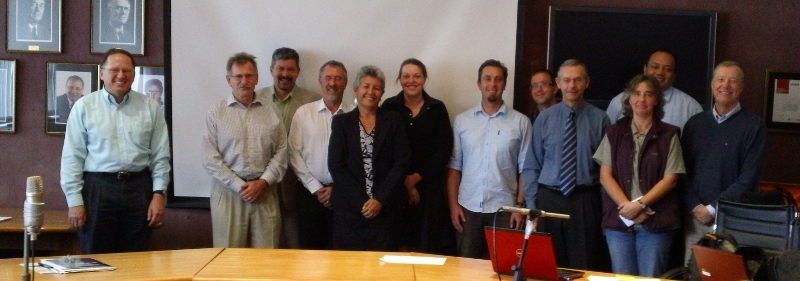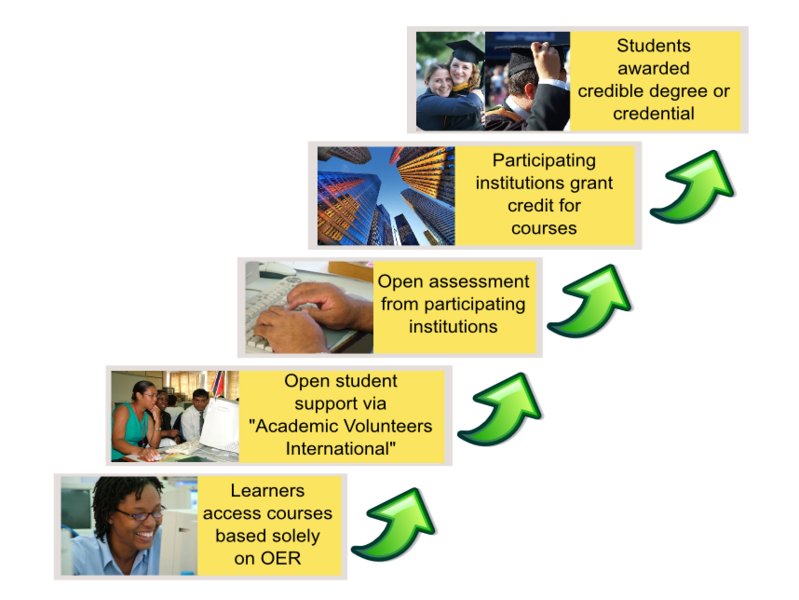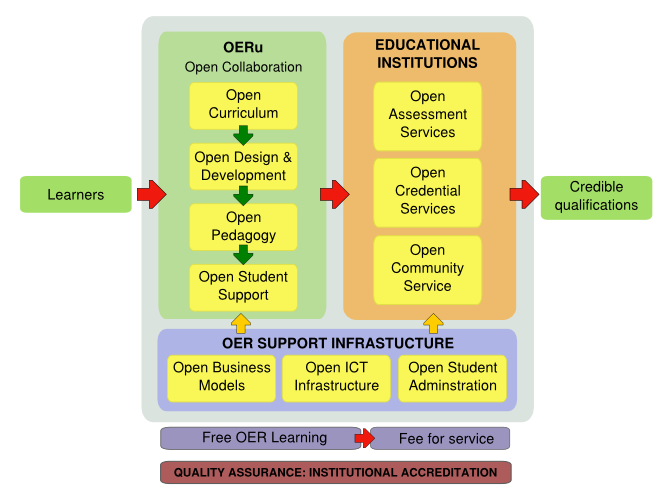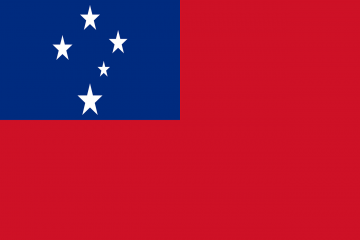The OER Foundation hosted a strategic international planning meeting for the OER for assessment and credit for students project at Otago Polytechnic on 23 February 2011 in Dunedin. New Zealand. The project aims to provide flexible pathways for learners from across the globe who have accessed open education courses to be assessed and earn credible qualifications for their work on a fee-for-service basis. Athabasca University, Otago Polytechnic and the University of Southern Queensland are collaborating as anchor partners in building an OERu. As an open project, all interested post-secondary institutions may join the initiative as anchor partners.

Participants attending the OER for assessment and credit for students international meeting.
UNESCO provided financial support to stream the meeting from Dunedin on the Internet to allow participation from education leaders and interested persons from around the globe. BCcampus in British Columbia Canada, hosted a pre-meeting SCoPE online seminar to generate inputs![]() for the planning meeting. The meeting attracted 202 registered virtual participants from 46 different countries. Representatives from, Australia, Canada, Fiji, New Zealand and Samoa attended the meeting in Dunedin including representatives from the university and polytechnic sectors, Ako Aotearoa, the New Zealand Ministry of Education, and the Tertiary Education Commission of New Zealand. Virtual participants were encouraged to provide input and feedback using the OER university microblog stream on identi.ca, the online proposal for action forms, and relevant wiki pages set up for the meeting in WikiEducator.
for the planning meeting. The meeting attracted 202 registered virtual participants from 46 different countries. Representatives from, Australia, Canada, Fiji, New Zealand and Samoa attended the meeting in Dunedin including representatives from the university and polytechnic sectors, Ako Aotearoa, the New Zealand Ministry of Education, and the Tertiary Education Commission of New Zealand. Virtual participants were encouraged to provide input and feedback using the OER university microblog stream on identi.ca, the online proposal for action forms, and relevant wiki pages set up for the meeting in WikiEducator.
Dr Visesio Pongi, Director of the UNESCO Office for the Pacific States stressed the importance of OER in realising the mission of education for all in his welcome address.”The concept of free learning for all students is well aligned with UNESCO’s global mission to provide education for all which now seems imminently more doable with the mainstream adoption of OER in our formal education institutions” said Pongi.
Sir John Daniel, President and Chief Executive Officer of the Commonwealth of Learning commended the project’s focus on providing pathways for credible qualifications. “Students seek flexible study opportunities, but they also want their achievements recognised in credible credentials. This important meeting will tackle the challenges of combining flexibility with rigour, which requires clarity in conception and quality in execution.” said Daniel.
Phil Ker, Chief Executive of Otago Polytechnic remarked that the OER university is history in the making.
Professor Jim Taylor, from the University of Southern Queensland – a founding member of the OER Foundation – led discussions on the OER university concept (Figure 1).

Figure 1: OER concept
Taylor also introduced a logic model (Figure 2) for planning the OERu. Key issues and appropriate responses were discussed at the meeting. The meeting stressed the importance for new pedagogies and corresponding digital literacies that will be required to scale the OER university concept in a sustainable and effective way.

Figure 2: OERu logic model
The meeting has commenced work on developing proposals for action relating to open business models, open pedagogy, open curriculum and open student support. An online follow-up meeting is planned to refine the draft proposals for action generated at the meeting including outputs, key performance indicators, milestones and budgets for securing external funding.
We envisage that the OER university will commence with two qualifications. First, foundation courses leading to a “Diploma of Arts” which will carry credit for Bachelor Degree qualifications thus focusing on the Community Service mission to widen access to degree study. Second, a Graduate Certificate in Tertiary Learning and Teaching, which will include an elective for OER. These qualifications will serve as pilot initiatives to refine and develop the model. The OER university welcomes the addition of more qualifications and OER materials to build a comprehensive spectrum of curriculum offerings.
Credits
Banner image: Seedling by 김경복 licensed under Pixabay License.
Original meeting report, published on WikiEducator.


